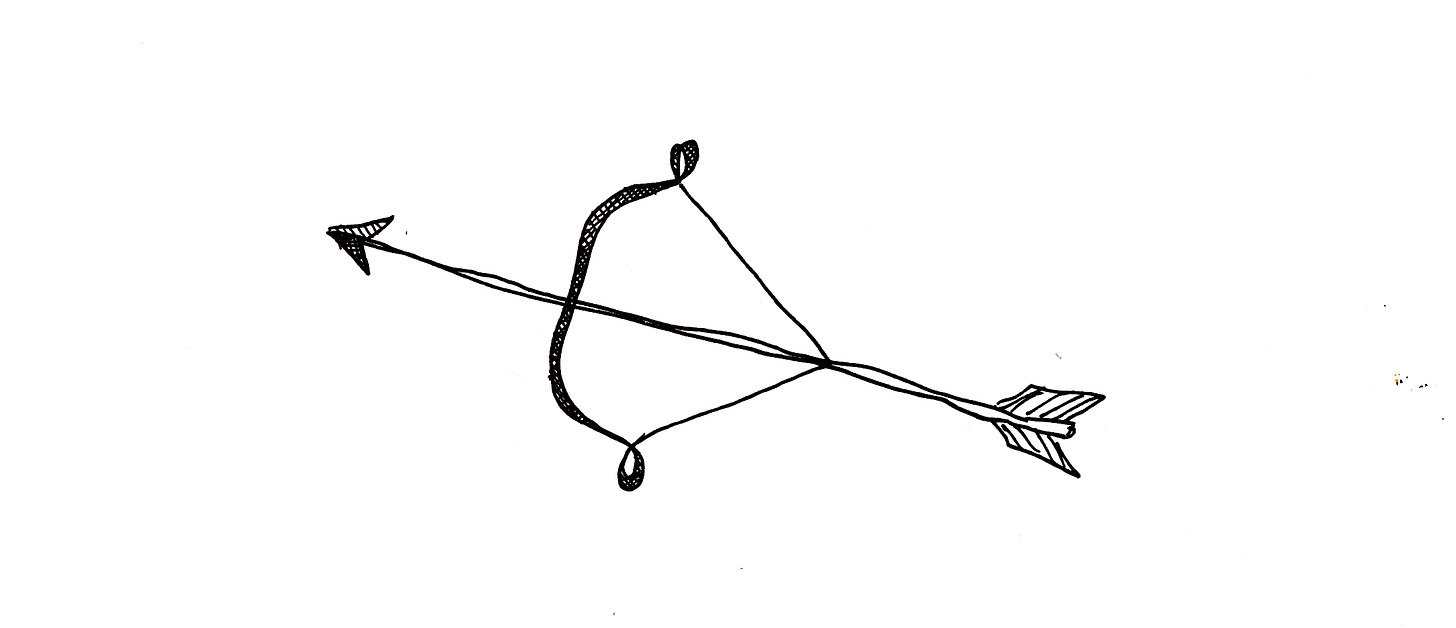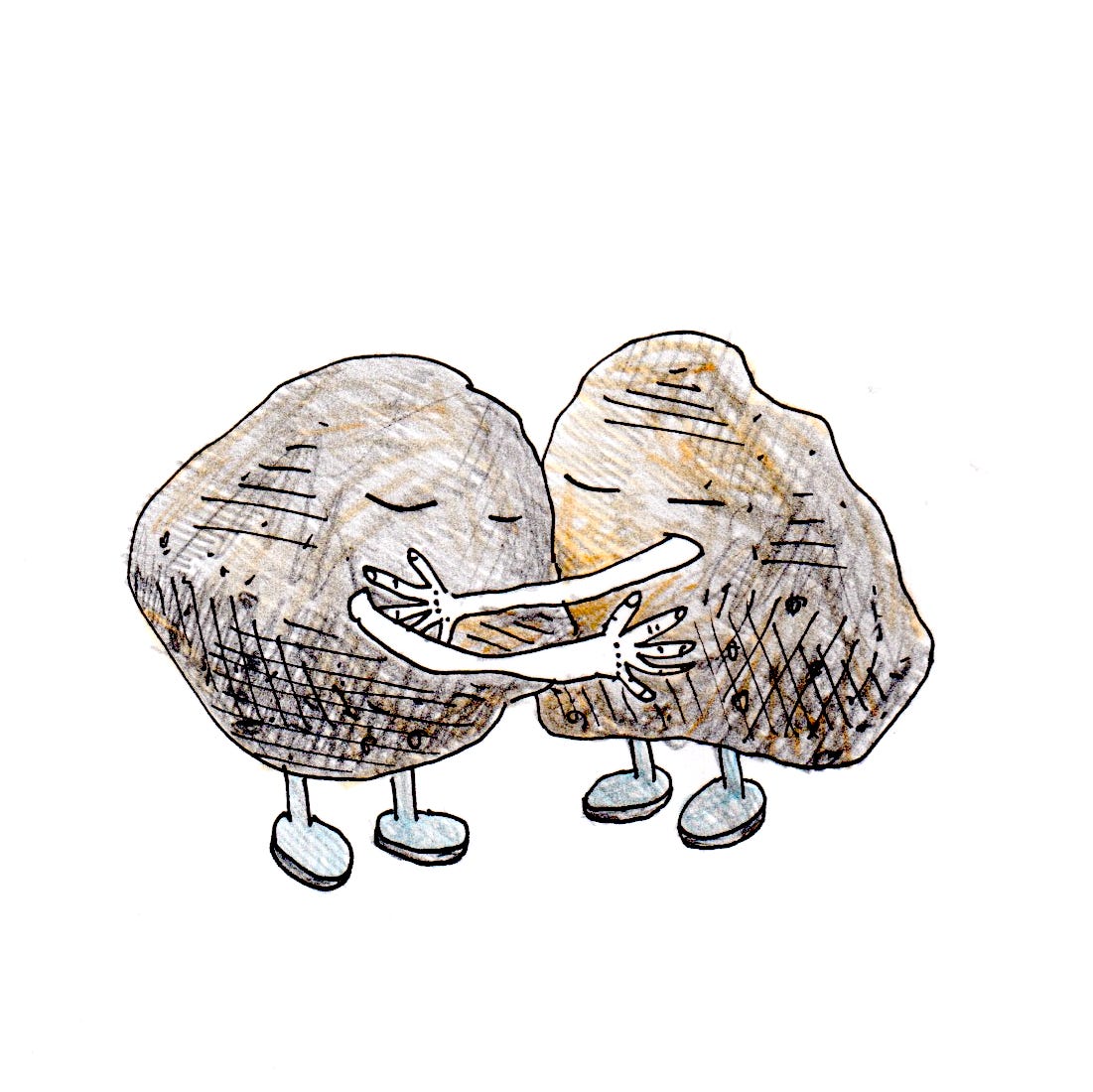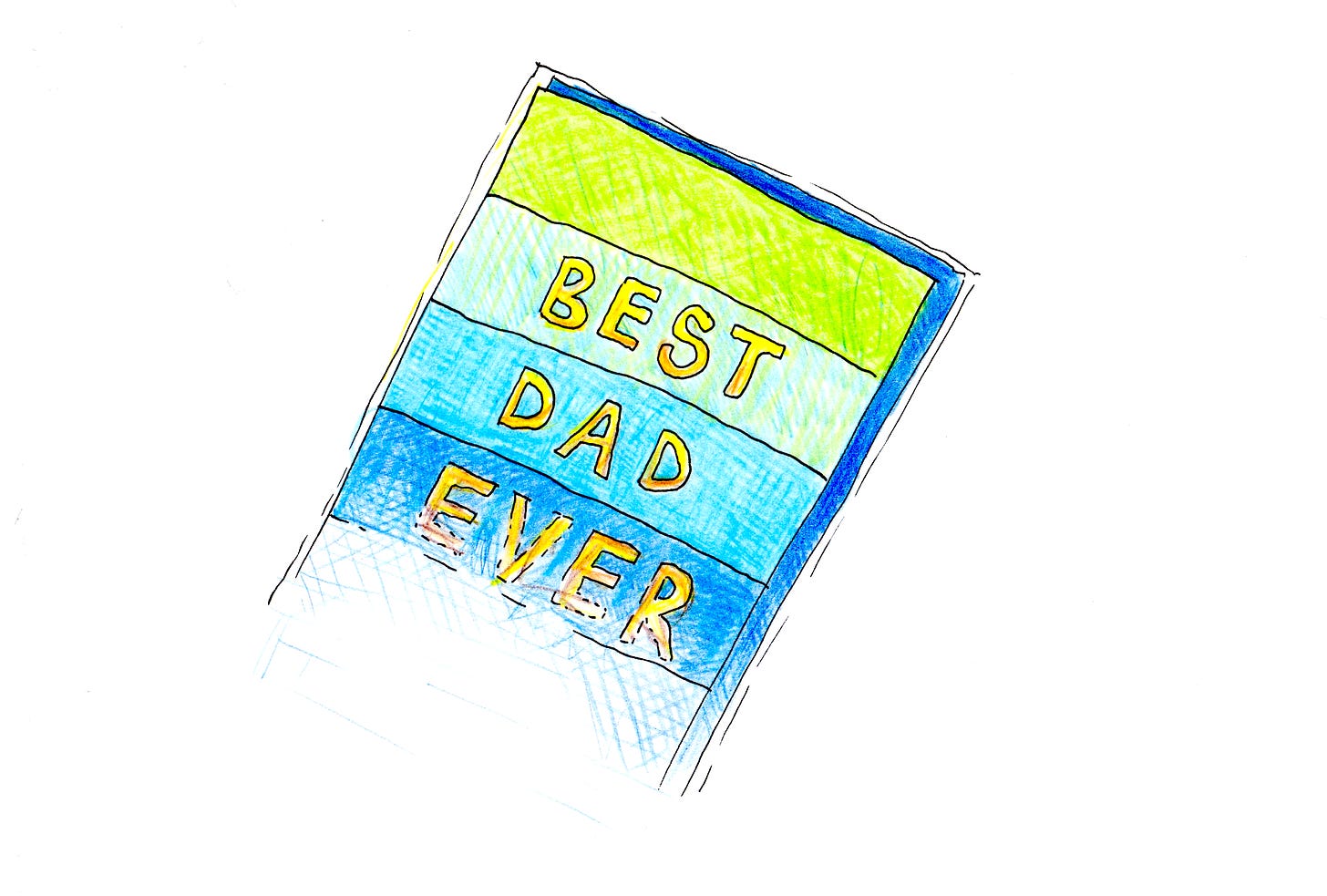The Small Bow is funded entirely out of the pockets of paying subscribers. We don’t take advertisements or sponsorships, we use your money to help pay for all our freelancers and Edith’s illustrations. Our newsletter is for people who have substance misuse issues or struggle with mental health, but our stories have a far greater reach than that. TSB is for the unlucky and the unlovable. The ugly and the lost. And if you’re undecided—it’s whatever you need it to be.
If our newsletter has helped you feel less wicked and alone, less shitty or afraid, then please consider financially supporting us. Subscribers get access to the entire archive, the Sunday essay, the entire recommendations roundup, and the complete rundown of my weekly recovery program. Seriously—thank you for letting us be of service.
Today, we’re doing some heavy Father’s Day stuff, beginning with a reboot of an essay that originally ran in 2022 and then again on Oldster magazine in 2023.
The Visitor
My elderly parents flew cross-country to Los Angeles from Ft. Lauderdale last week for Father’s Day and my oldest son’s birthday. It was the first time we’d seen them in 18 months since the world shut down. My father just turned 80. His health, since the last time I saw him in person, had abysmally declined. My mother told me about a week prior to the trip that he was “using a walker,” but I never fully processed it. He’d had some lumbar issues, hip issues, old man issues, so I assumed the walker was temporary. But from the moment he shakily stepped out of the Uber, I could tell he’d never walk without assistance again.
We helped him up the steps to the house, chanting each of his steps on the way to the door:
“Right foot. Left foot. Last step, now.”
“You did it!”
Phew.
I shuffled him into the house and plopped him down onto the couch while my mother hurriedly unpacked all their things, anxious for her grandchildren to get home from the babysitter’s. My father switched from the walker to a purple cane. It was my grandmother’s, my mom’s mother. She was Greek, joyful, funny, and wise. She picked that color because she wanted everyone to know she walked slower but she was still here to have fun. My dad was not a purple cane, here-to-have-fun guy.
I sat on the chair across from my father and he stared at me like he was eager to tell me something.
“Do you know I’m your father?”
I looked at him, unsure if this was a joke, but this was way too subversive for him.
“You … are my son.” He raised his eyebrows to assure me that this was news he’d just found out but that it was, in fact, 100% true.
“Do you believe that? You are my son.” He still could not believe it.
My mother came into the living room quickly to intervene. On the flight, she had to remind him of who I was and why they were flying to Los Angeles to see me. My father thought the purpose of the trip was to reveal that I was his real son all along. There is no salacious paternity story or big reveal other than he’s at the stage of his Lewy body dementia when shit gets really spooky.
In my head, I’d prepped for this moment differently. I was ready to feel dizzy from intense moments of either love or grief because my mother told me that this would be the last time she’d be able to bring him out to see us. But I felt okay.
The last two times they’d visited were not great. When they came in October of 2019, my father and I got into a vein-popping shouting match where I threatened to throw him off the porch deck if he didn’t stop being an asshole in front of my children “They won’t remember!” he said. I could have choked him to death.
Amazingly, they came back again for Christmas. This time, my mom had doped him up with beta-blockers and sedatives to keep his temper in check. He wasn’t going to ruin her Christmas. I did my part—I kept it “light and polite,” as my Al-Anon sponsor suggested. My father and I kept a safe distance from each other. They came and went without any drama.
But this? I wasn’t prepared for this.
“I’m your father! Do you believe it?” He accidentally dropped the cane.
This reminded me of my grandfather, my dad’s father, who had the same cursed disease.
My dad’s father, Albert Sr., was a soft-spoken, gentle Italian man who worked most of his life as an insurance salesman in Northeast Philadelphia, where most of his clients were first-generation Italian immigrants who trusted him. He did okay at his job, enough to raise two kids and not want too much in his life. He was married for almost 40 years to my grandmother, Raphaella, and he loved her more than most people love air. “I got a good one,” he’d boast. But she chain-smoked, and then she got emphysema. Everyone knew the end was soon.
In 1986, when I was 12, we got the news of her death while we were visiting my Aunt Anne in Rhode Island. I was ill with what was originally thought to be food poisoning but later turned out to be acute appendicitis. I was hunched over the toilet when my uncle called my father at the hotel they were staying at. “I’m really sorry, Al.”
We ended up driving home that night. It was snowing, and there was a huge accident on the highway. It took us almost 10 hours to get home. My father said nothing the whole ride back. I spent most of the ride puking into a Best Western wastebasket they’d taken from the hotel. I laid back there, and when I looked up and out the window, I saw all the brake lights reflecting in the falling snow. A man in the car beside us got out to see how bad the accident was. Gas had spilled. “No smoking! No smoking!” he yelled deep into the traffic jam. I don’t know why I remember this so vividly.
We got home, and I went into the hospital after that to have my appendix removed. It exploded on the operating table. Back then, appendixes were still carved out of you, so I have a Frankenstein-looking scar above my right hip.
My grandfather was grief-stricken for several years after she died. He moved into a small apartment by himself but would come over to our house every Sunday. Once, I went with my dad to drive my grandfather back to his apartment, and he broke down and sobbed. “Why me!” he cried into his handkerchief. He was so lonely. He wanted to die, he said. My dad stayed focused on the road. “Why any of us?”
I guess his implication was that we all suffered through loss. My father lacked the tools to show compassion.
Keep reading with a 7-day free trial
Subscribe to The Small Bow to keep reading this post and get 7 days of free access to the full post archives.







